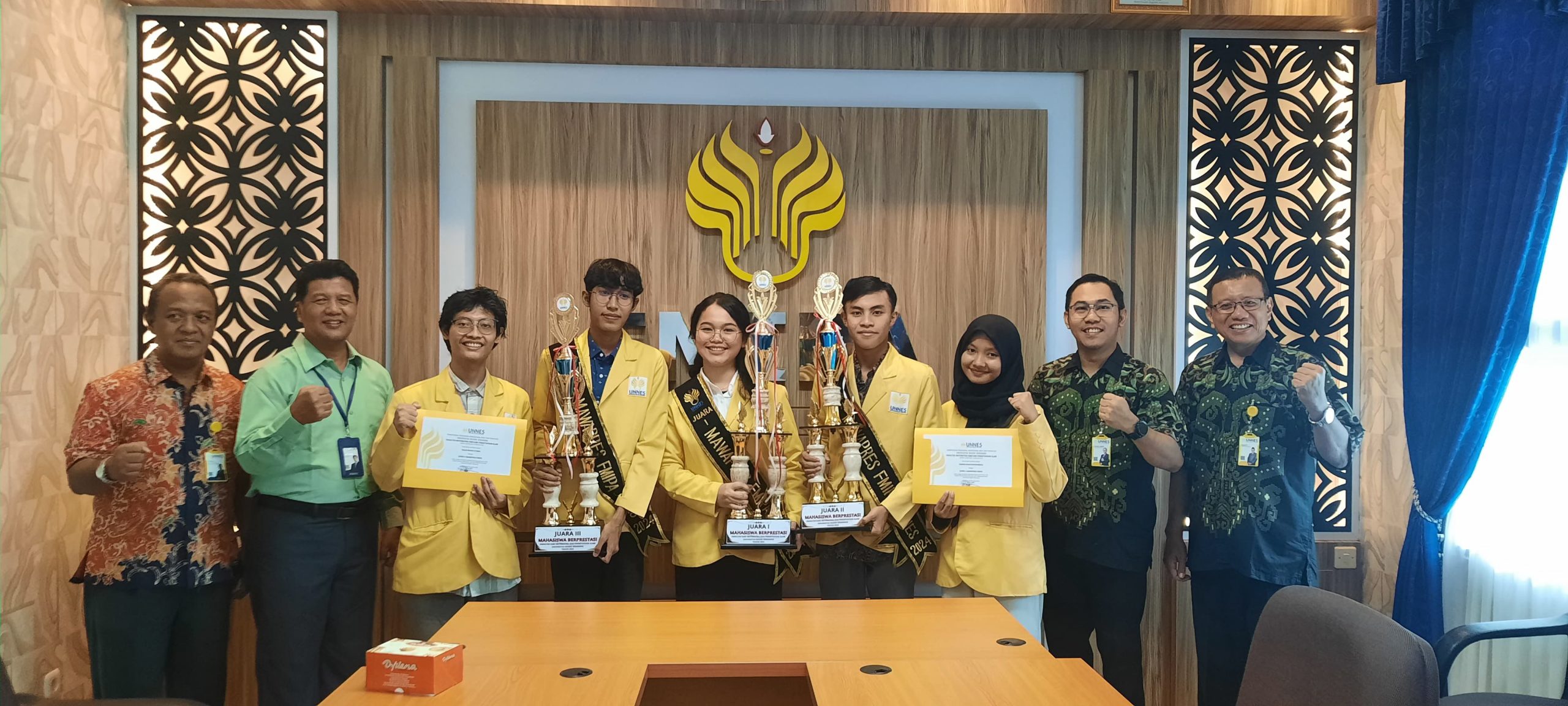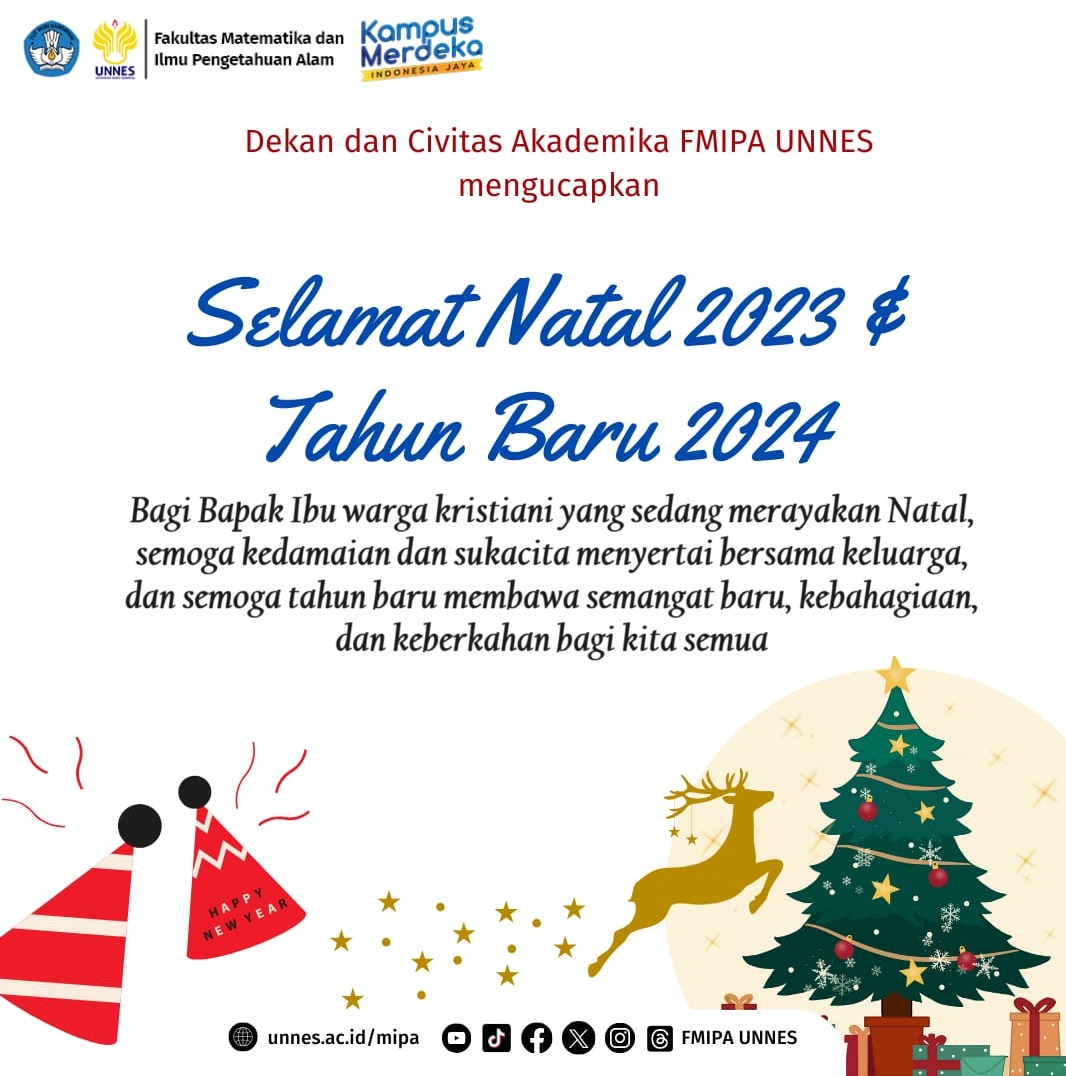
A student of the Mathematics Education Study Program, Class of 2019, currently serving as the Chairperson of the Students Staff in the Mathematics Department of the Faculty of Mathematics and Natural Sciences, UNNES. Also, serving as a Staff Member in the Talent and Interest Department of HIMATIKA Askara 2021 and a Staff Member in the Science Study Department of KIM Reswara 2021.
The use of inappropriate teaching models leads to monotonous and boring learning, which reduces students’ interest and motivation to learn. Students at the junior high school level need learning media that can help visualize objects in geometry. The problem in this learning process, as indicated by interviews with mathematics teachers at SMP Negeri 1 Tayu, shows that students experience a decrease in interest and motivation to learn mathematics in online learning. Innovative geometry learning to develop spatial abilities and learning motivation is highly needed.
The Problem-Based E-Learning (PBeL) model is an e-learning approach that uses real-world problems to enhance students’ abilities and knowledge (Shoimin, 2013). According to Nurtanto & Sofyan (2015), the steps of PBeL learning consist of: (1) problem orientation, (2) learning organization, (3) individual and group investigation guidance, (4) development and presentation of results, and (5) analysis and evaluation of problem-solving processes. The PBeL learning model is suitable for geometry topics that are practical and related to everyday life. This model is different from existing models as it incorporates cultural nuances, making it easier for students to understand and apply. Javanese culture represents the culture that exists within the Javanese community in general. Culture can be defined as objects, buildings, values, norms, or customs that develop in the local community (Haryanto, 2014). The PBeL learning model with a Javanese cultural nuance generally lacks the use of technology or learning media that can make e-learning geometry more engaging and enjoyable.
Nurrohmah (2015) revealed in her research that the use of appropriate learning media can enhance students’ learning motivation. The presence of learning media makes the learning process more interactive. One technological innovation in education is the use of augmented reality-based assemblr applications. Augmented reality is a technology that can project two or three-dimensional objects into the real environment simultaneously (Mustaqim and Kurniawan, 2017). The use of augmented reality can replace the limited function of geometry aids in online learning. Martín-Gutiérrez et al. (2010) stated that the use of augmented reality (AR) has a positive impact on spatial abilities. AR is presented through the assistance of the assemblr application. Assemblr also functions as a classroom equipped with supporting features such as materials, scanning, and accounts that support e-learning.
Based on that background, the PKM-RSH Team of the Mathematics Department, FMIPA, consisting of Bebyd Noverianto (Mathematics Education 2019), Firdha Dwi Lestari (Mathematics Education IC 2019), and Siti Lailiyatul Maqfiroh (Mathematics Education 2018) with their supervisor Detalia Noriza Munahefi, S.Pd., M.Pd. (Lecturer of the Mathematics Department) conducted a research titled “The Effectiveness of Problem-Based E-Learning Assisted by Javanese Culture Augmented Reality-Based Assemblr to Improve Spatial Abilities and Learning Motivation of Students”.

The innovation carried out in this research is the use of the Problem-Based E-Learning Assisted by Javanese Culture Augmented Reality (PBeL-AR) learning model. The aim of this research is to identify the effectiveness of the PBeL-AR model on students’ spatial abilities and learning motivation, as well as the influence of learning motivation on students’ spatial abilities in this learning model. This research is an empirical study with a quasi-experimental quantitative data design. The sampling technique used cluster random sampling, which consisted of a control group with a conventional model, experimental group 1 with the PBeL model, and experimental group 2 with the PBeL-AR model. Data collection was done through spatial ability tests and a learning motivation questionnaire. The ANOVA test results showed that the average scores of spatial abilities and learning motivation in the PBeL-AR class were higher than those in the conventional and PBeL classes. The z-test results indicated that students in the PBeL-AR class achieved mastery above 80%, while the PBeL and conventional classes were below 80%. The paired-sample t-test showed an improvement in students’ spatial ability scores in the PBeL-AR class, and based on the N-Gain Score test, the influence of the PBeL-AR model on spatial abilities was categorized as high. Regression analysis results showed that the influence of learning motivation on students’ spatial abilities in the PBeL-AR class was higher than in other classes, reaching 93.8%. Therefore, it can be concluded that the PBeL-AR model is effective in improving students’ spatial abilities and learning motivation, and learning motivation has a positive effect on students’ spatial abilities.
Among the research outcomes produced are registered e-learning textbooks with intellectual property rights (HAKI) and ISBN, as well as registered instructional videos with intellectual property rights (HAKI). Our PKM-RSH team also won a gold medal in the poster category at the 34th PIMNAS event in 2021. The results of this research are expected to serve as a reference for e-learning in geometry. Further research is expected to develop the findings of this study. The PBeL model has the potential to be developed in other geometry topics such as curved surface solids and three-dimensional dimensions in high school. The Javanese culture or cultural nuances used also have the potential to be developed with other relevant local cultures. As for the augmented reality-based assemblr media, it is flexible and can be used according to the needs of educators.
Here is a brief overview of the innovation Problem-Based E-Learning Assisted by Javanese Culture Augmented Reality (PBeL-AR).
References:
Haryanto, & Joko, T. 2014. Local Wisdom Supporting Religious Harmony in the Tengger Community, Malang, East Java. Jurnal Analisa. 21(02): 201-213.
Martín-Gutiérrez, J., Saorín, J. L., Contero, M., Alcañiz, M., Pérez-López, D. C., & Ortega, M. 2010. Design and validation of an augmented book for spatial abilities development in engineering students. Computers & Graphics. 34(1): 77-91.
Mustaqim, I., and Kurniawan, N. 2017. Development of Augmented Reality-Based Learning Media. Jurnal Edukasi Elektro. 1(1): 36-48.
Nurrohmah, Y. A. 2015. The Role of Learning Media in Improving Student Learning Motivation in the History Subject for Grade VIII at SMP Muhammadiyah 5 Surakarta in the Academic Year 2014/2015. Undergraduate Thesis. Muhammadiyah University of Surakarta, Surakarta.
Nurtanto, M., & Sofyan, H. 2015. Implementation of Problem-Based Learning to Improve Students’ Cognitive, Psychomotor, and Affective Learning Outcomes in Vocational High School. Jurnal Pendidikan Vokasi. 5(3): 352-364.
Shoimin, A. 2014. Innovative Learning Models in the 2013 Curriculum. AR-ruz media. Yogyakarta.





